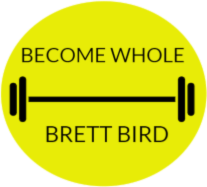Wanting help arises from emotion. Needing help arises from sheer motivation to change.
There is a big difference between wanting support and needing it. Sometimes we’re good at knowing what the difference is, while other times we can get these mixed up.
There are times when we’re feeling low after a hard day. We would like to listen to an uplifting podcast or motivational YouTube video to raise our spirits. At other times, we need the solution to a major problem. Perhaps we need to tackle a DIY (do-it-yourself) job around the house, and you know you need to hop on Google and get the answers to the problem.
We want positive messages, as there are times when we want to feel encouraged. We want a pep talk and someone to coach us into taking confident actions. There are also crises that occur that point a large glaring neon arrow at a major deficiency within us.
Personally, I believe simply wanting help, a pep talk or motivation is all good. However, it really pays dividends to adapt a keen awareness of when we need to improve, and more importantly what specifically needs improving. Ideally, this should be done before a major event highlight this.
Needing something requires first having an awareness that such a need exists. It’s very possible to have a need and not even be aware of what that need is. You can have this need and be oblivious to it. You can also have a passing awareness of the need and confuse it with a want.
We often get in our own way when it comes to getting clear on what our wants and needs are.
Pride, ego, lack of self-awareness and comfort levels are all factors. This post will give you a birds-eye view of how these can factor into the confusion. Look out for a future post where I more fully flesh that out.
Our pride and ego make us think that while we may have a need, we completely overlook it. The person with a high propensity for having a victim mindset and low self-worth will believe that he’s operating his/her life as if his outlook doesn’t need adjusting. This person simply has no awareness of his/her glaring flaws even as they are obvious to everyone else. On top of that, this person feels a strong level of comfort in these patterns, even though he/she may be miserable inside. Happiness feels foreign, and his day-to-day mindset is fixed with no hope of improving. To make matters worse, to admit that this is a problem is an extremely threatening proposition to this person because to do this would be crippling to this his or her self-worth.
That’s why it’s a given that for growth to occur, the person must first be open and ready to accept that growth. It’s been said that the first step to a solution is usually a profound awareness of the problem, which comes with the motivation to change. The person’s existing level of comfort with the problem must plummet, usually due to seeing what the dire cost is of not changing firsthand.
Our first awareness of the need typically arises due to a crisis point in our lives. Sadly, this is often what it takes to truly see the damage being wrought, which finally provides the motivation to change. What was once comfortable becomes almost unbearable.
We can want self-improvement. It’s another thing to understand when you NEED it, and it’s crucial to understand the difference between the two. To head off crises at the pass. This requires painful introspection and being in tune with how the people in your life relate to you, and you to them.
Brutal clarity is the best way to really know what you need to change.
It’s the difference between listening to advice (wanting to hear something encouraging) and applying it to what you want to achieve.
It’s like the self-help junkie that has amassed and read 100+ books, and yet never does anything with the words within the pages. The only thing that’s improved is his book collection.
Deep down, he knows he must change. When a crisis finally happens, a person tends to pig out on self-help books as a way of trying to “correct” the problem. For example, when a wife decides to leave her husband, he sees that he needs to change, so he buys a bunch of books at random. This is because he lacks focus and clarity on exactly WHAT needs to change. This kind of clarity involves getting out of that crisis mode and doing the introspection so that he can gain that clarity. I recommend anyone in any kind of personal crisis or disaster hold off on buying books until clarity is achieved around what the issues are that lead to the crisis occurring.
A recurring theme in my book “Become Whole” is about gaining that clarity. By becoming whole, most of the negative issues that would result in a crisis can be prevented by taking steps and mindset shifts to get to the middle of the barbell continuum towards being whole. It’s ideal to do this before a crisis hits, but if one does and provides the motivation and will to change, you give yourself the opportunity to make serious changes for the better! I’ve been there.
Those of us who’ve used out crises in our lives to make it better deserve all the respect in the world. As does anyone else with the drive to improve themselves.

